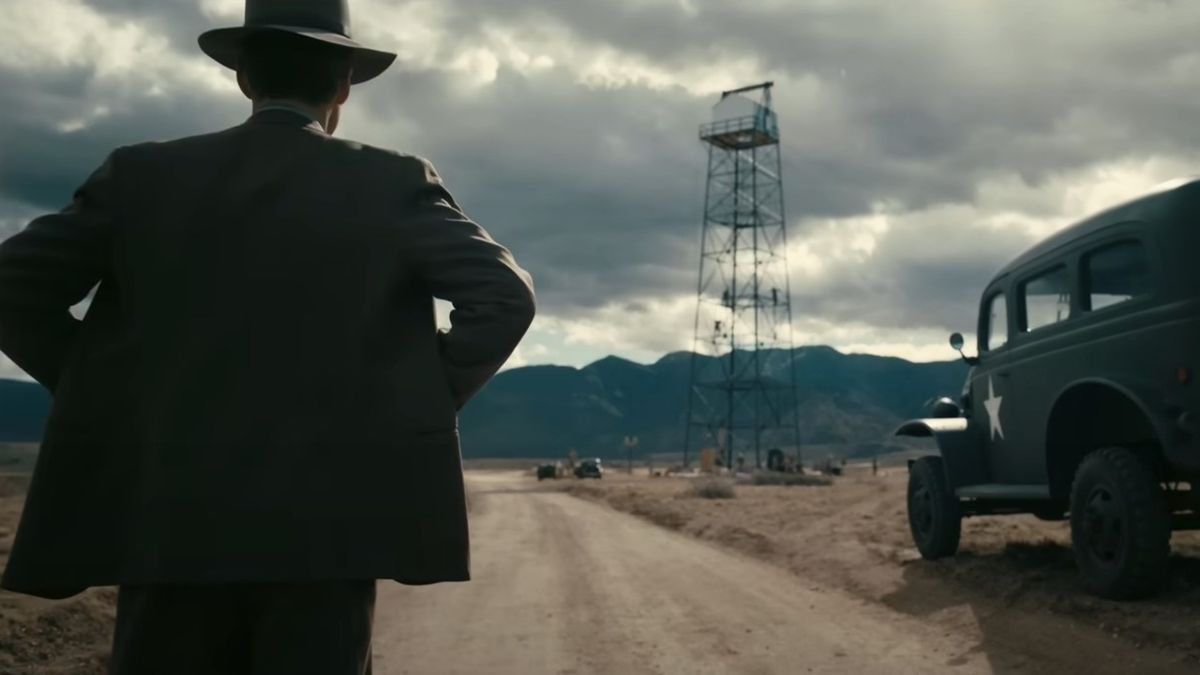While success in 21st century Hollywood is almost entirely driven by IP-based productions, there remains a small group of directors whose films can be sold specifically on their name and ultimately become massive box office hits. Along with Quentin Tarantino and Jordan Peele, Christopher Nolan is one of these filmmakers. It’s obviously a privileged position – and it’s one that the helmer of Oppenheimer doesn’t take for granted. In fact, it’s because of the resources that are regularly at his disposal that Nolan has dedicated the majority of his career to date to making movies with tremendous scale and big budgets.
The size of Christopher Nolan’s films was recently a point of discussion during an interview with Time Magazine . The writer/director was asked about recent releases that he particularly favors, and he named two titles that are far smaller than anything he has personally done in the last decade-and-a-half: Charlotte Wells’ coming-of-age film Aftersun and Celine Song’s romantic drama Past Lives. The contrast in subtlety between those movies and Nolan’s blockbusters was evidently highlighted in response, which led the filmmaker to explain why it is that he is drawn to making large-scale features like Interstellar, Dunkirk, Tenet and Oppenheimer. Said Nolan,
I’m drawn to working at a large scale because I know how fragile the opportunity to marshal those resources is. I know that there are so many filmmakers out there in the world who would give their eye teeth to have the resources I put together, and I feel I have the responsibility to use them in the most productive and interesting way.
If the vast majority of filmmakers went into the studio system trying to produce a biopic about J. Robert Oppenheimer, they would probably struggle to get proper financing… but Christopher Nolan is playing in a different league than most because he has established a strong reputation with audiences. His association automatically generates interest – which is why Universal Pictures was willing to provide him with a nine-figure budget for his adaptation of Kai Bird and Martin J. Sherwin’s American Prometheus: The Triumph and Tragedy of J. Robert Oppenheimer. Nolan’s track record made it a low-risk gamble, and it clearly paid off. Despite the fact that it opened on the exact same week as what would turn out to be the biggest hit of 2023 (Greta Gerwig’s Barbie), Oppenheimer grossed nearly $1 billion at the global box office by the end of its theatrical run. It stands as Nolan’s third biggest hit (behind The Dark Knight Rises and The Dark Knight), and it’s been nominated in 13 categories for the 2024 Academy Awards.
At present, it’s unknown what Christopher Nolan has planned as his next feature, but you can be sure that he will be given every red cent that he desires in order to fulfill his personal vision for the project, and based on his quote above, he will make something that best takes advantage of that rare opportunity.
Nolan hasn’t made a film with a budget under $100 million since 2006 when he made the magician-centric thriller The Prestige, and while fans might be curious to see what he would do with a smaller project nowadays, it doesn’t seem like that’s a significant priority for him. With things going so well, why change course? He certainly finds fascinating ways to use the resources with which he is provided, and there is every expectation that he will continue to do that for as long as he can.
